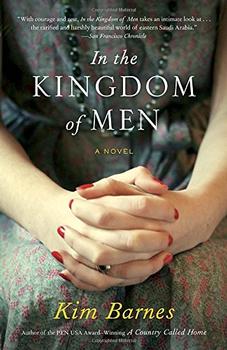Summary | Excerpt | Reading Guide | Reviews | Beyond the book | Read-Alikes | Genres & Themes | Author Bio

A Novel
by Monique RoffeyA beautifully written, unforgettable novel of a troubled marriage, set against the lush landscape and political turmoil of Trinidad
Paperback Original
Monique Roffey's Orange Prize-shortlisted novel is a gripping portrait of postcolonialism that stands among great works by Caribbean writers like Jamaica Kincaid and Andrea Levy.
When George and Sabine Harwood arrive in Trinidad from England, George is immediately seduced by the beguiling island, while Sabine feels isolated, heat-fatigued, and ill-at-ease. As they adapt to new circumstances, their marriage endures for better or worse, despite growing political unrest and racial tensions that affect their daily lives. But when George finds a cache of letters that Sabine has hidden from him, the discovery sets off a devastating series of consequences as other secrets begin to emerge.
Seamlessly integrating political issues involving race, colonialism, and the legacy of slavery with the more personal conflicts that Sabine and George experience in their marriage, Roffey crafts a novel whose epic scope - the action spans 50 years and is broken down into temporal sections: 2006, 1956, 1963, and 1970 - belies its intimate perspective...continued
Full Review
(754 words)
This review is available to non-members for a limited time. For full access,
become a member today.
(Reviewed by Marnie Colton).
In 1956, Americans were getting their first taste of Trinidad's unique contribution to music in the form of Harry Belafonte's infectious crossover hit, "The Banana Boat Song (Day-O)." A brief fervor for all things calypso followed, resulting in such nutty fare as tough guy actor Robert Mitchum's album, Calypso - Is Like So... (1957), and kitschy B movie Bop Girl Goes Calypso (1957). Although Belafonte may have been known as the King of Calypso in the United States (a claim to fame never made for Mitchum), Trinidadians revered serious performers like Lord Kitchener, Sir Lancelot, and the Mighty Sparrow, and for them, calypso symbolized much more than barbecue background music.
The roots of calypso are believed to date back to the ...
This "beyond the book" feature is available to non-members for a limited time. Join today for full access.

If you liked The White Woman on the Green Bicycle, try these:

by Kim Barnes
Published 2013
From the PEN USA Award-winning author of A Country Called Home, a richly imagined new novel about a young woman who leaves the dusty farmland of 1960s Oklahoma to follow her husband to the oil fields of Saudi Arabia and finds a world of wealth, glamour, American privilege, and corruption.

The Secret History of Costaguana
by Juan Gabriel Vásquez
Published 2012
Tragic and despairing, comic and insightful, The Secret History of Costaguana is a masterpiece of historical invention.
At times, our own light goes out, and is rekindled by a spark from another person.
Click Here to find out who said this, as well as discovering other famous literary quotes!